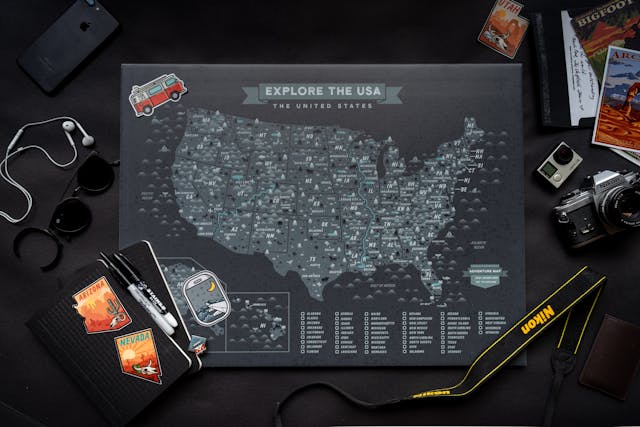
Traveling opens the door to new experiences, cultures, and memories. Whether you're a seasoned traveler or planning your first trip, these essential travel tips will help you make the most of your journey.
Before embarking on your adventure, it's crucial to plan and prepare. Research your destination thoroughly to understand the local customs, weather, and any travel advisories. Knowing the best time to visit, the local currency, and common phrases in the local language can greatly enhance your travel experience.
Packing efficiently is an art. Create a packing list to ensure you don't forget anything important. Choose versatile clothing items that can be layered and mixed and matched. Roll your clothes to save space and avoid wrinkles. Don't forget to pack a small first aid kit with essentials like band-aids, pain relievers, and any prescription medications you might need.
Your travel documents are vital. Always carry copies of your passport, visa, travel insurance, and important contact numbers. Store these copies separately from the originals. Additionally, consider emailing scanned copies to yourself for easy access in case of loss or theft.
Staying healthy while traveling is essential. Make sure you are up-to-date with any necessary vaccinations and carry any prescribed medications. Drink plenty of water, especially when flying, to stay hydrated. Be cautious with street food and always ensure that what you eat is cooked thoroughly and served hot.
Money management is a key aspect of travel. Inform your bank of your travel plans to avoid any issues with your cards. Carry a mix of payment options, including cash and credit cards. Be aware of currency exchange rates and avoid exchanging large amounts of money at airports, where rates are often less favorable.
Accommodations can greatly impact your travel experience. Book your stay in advance, especially during peak seasons. Reading reviews from other travelers can provide insights into the quality and safety of the lodging. If you're on a budget, consider alternatives like hostels, guesthouses, or vacation rentals.
Navigating a new place can be challenging. Download maps and guides to your phone for offline use. Learning a few basic phrases in the local language can be incredibly helpful. Don't hesitate to ask locals for directions; they can often provide the best recommendations for places to visit and eat.
Safety should always be a priority. Be aware of your surroundings and keep your belongings secure. Avoid carrying large amounts of cash and be discreet with your valuables. Familiarize yourself with local emergency numbers and the location of the nearest embassy or consulate.
Exploring new cuisines is one of the joys of travel. Be adventurous but cautious. Start with small portions if you're trying something new to see how your body reacts. Drinking bottled water and avoiding ice cubes can help prevent stomach issues in regions where water quality may be a concern.
Finally, be respectful of the local culture and environment. Follow local customs and dress codes, especially when visiting religious or cultural sites. Reduce your environmental impact by minimizing waste and supporting eco-friendly practices. Traveling is not just about seeing new places but also about respecting and preserving them for future generations.
By following these travel tips, you'll be well-prepared to enjoy a safe, healthy, and enriching travel experience. Remember that flexibility and an open mind are key to making the most of any journey. Safe travels and happy exploring!